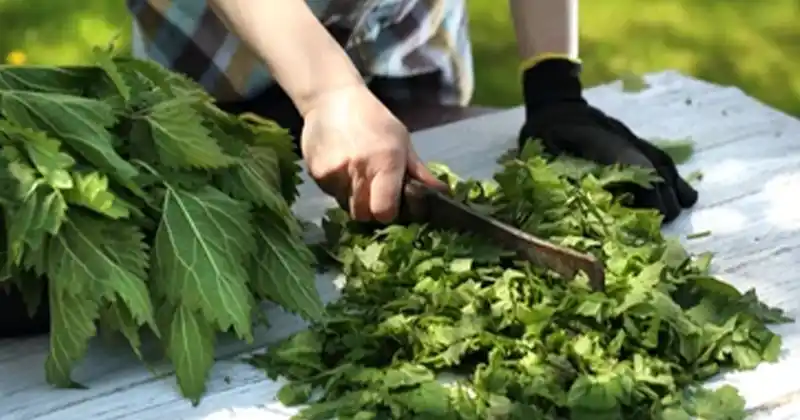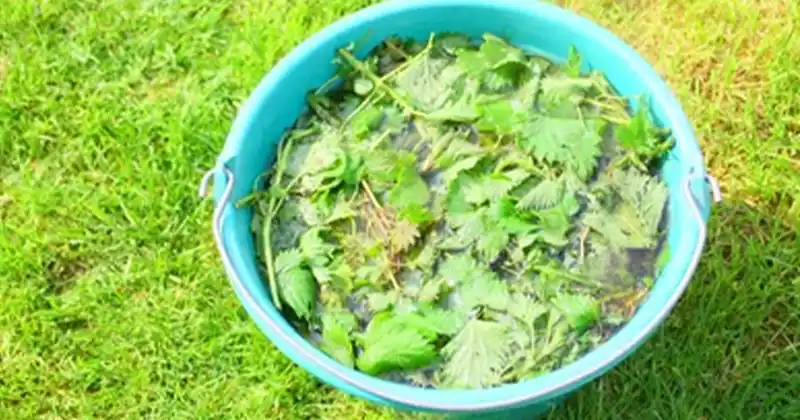In the life of a gardener, each season presents a unique set of challenges and opportunities. As the unpredictable weather of early spring can impose undue stress on our plants, it’s crucial to arm ourselves with knowledge and natural remedies to ensure their survival and thriving.
Understanding Weather Impact on Plants
Recently, we have experienced unusually high temperatures for this time of year followed by a sudden drop, stressing the delicate balance of our garden ecosystems. Plants, much like humans, are susceptible to these abrupt changes; they can lead to stunted growth, reduced yields, or even plant loss if not managed correctly.
The Role of Nettle in Plant Health
One of the most effective natural remedies in our gardening arsenal is nettle. This common weed is not only a powerhouse in the human diet but also a superb enhancer for plant health. Nettle can be used to make a simple yet effective fertilizer that supports plant growth and resilience.

Recipe for Nettle Fertilizer:
- For Growth Stimulant:
- Take a small handful of dried nettle leaves and soak them in one liter of water.
- Leave the mixture to steep for about ten days.
- Dilute the solution in a 1:3 ratio with water before using it to water young plants. This will accelerate growth and enhance disease and pest resistance, such as against green aphids.
- For a More Concentrated Mix:
- Soak 1 kg of fresh nettle leaves in 10 liters of water.
- Let it sit for 15 days, strain, and dilute the solution in a 1:10 ratio with water.
- Use this mixture to regularly water your plants, promoting robust health and vitality.

Foliar Feeding: A Direct Nutrient Pathway
Beyond soil amendments, foliar feeding — the practice of spraying the leaves with nutrient solutions — is an excellent method to provide nutrients directly to the plants where they can be immediately absorbed. This technique is especially useful during sudden cold snaps, as it helps mitigate the shock by providing quick access to essential nutrients.
Nettle Spray for Foliar Feeding:
- Prepare a diluted nettle solution in a 1:50 ratio with water.
- Spray this mixture directly onto the plant leaves. This not only feeds the plant but also acts as a natural insecticide.
Additional Homemade Nutrient Mixtures
Garden waste and kitchen scraps also hold potential as excellent plant nutrients. Here’s how you can turn this waste into gold:
- Grass Clippings and Eggshells:
- Compost grass clippings, eggshells, and wood ash to create a nutrient-rich mix.
- This homemade compost can be used as a mulch or a soil conditioner, providing essential nutrients and improving soil structure.
- Yeast Solution for Enhanced Growth:
- Dissolve 50 grams of baker’s yeast and a teaspoon of sugar in 1 liter of water.
- Let the solution activate for an hour, then dilute it with 50 liters of water.
- Water your plants with this solution weekly to promote vigorous growth and resilience.
Weather and Pest Considerations
As gardeners, we must also be vigilant about the climatic conditions and potential pest threats. Ensuring that our plants are well-nourished and protected against fluctuations in temperature and pest invasions is key to maintaining a healthy garden.
- Temperature Management: Aim to keep the day and night temperature fluctuations minimal. Ideal daytime temperatures for this season range from 15 to 20 degrees Celsius, with careful monitoring to prevent overheating, which can be detrimental at around 30 degrees Celsius.
- Pest and Disease Protection: Regular use of natural insecticides like nettle spray can significantly reduce the incidence of pests and diseases. Observing the plants regularly for any signs of distress and acting promptly can prevent many issues before they escalate.
In conclusion, embracing natural and organic methods to nurture our gardens not only supports sustainable gardening practices but also promotes the health of our plants and our environment. By preparing our gardens with these homemade solutions, we ensure a robust start to the growing season, setting the stage for a bountiful harvest.


